1787
_christy_constitution_l.jpg)
At the Constitutional Convention in Philadelphia, Georgians and future senators Abraham Baldwin and William Few signed the new U.S. Constitution.
1789
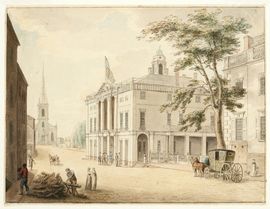
The Senate convened for the first time at Federal Hall in New York City. William Few, Georgia’s first U.S. senator, appeared and took his seat, but because only eight senators were present, there were not enough to constitute a quorum. The body was forced to adjourn each day until April 6, when it achieved its first quorum of 12 members, out of the eligible 22.
1789
James Gunn, Georgia’s second senator, appeared at Federal Hall in New York City and took his seat.
1789

The Senate drew lots to determine the three classes of senators. William Few was assigned the Class 2 seat, with a four-year term to expire in 1793. James Gunn was assigned the Class 3 seat, with a six-year term to expire in 1795.
1801

Abraham Baldwin of Augusta was elected Senate president pro tempore. He was elected president pro tempore again on April 17, 1802.
1817

Senator George M. Troup of Dublin became chairman of the Committee on Military Affairs (today's Committee on Armed Services), serving until 1818.
1828

Senator John M. Berrien of Savannah became chairman of the Committee on the Judiciary, serving until 1829, and again from 1841 to 1845 during his second tenure in the Senate.
1831
In the Senate once again, John Forsyth became chairman of the Committee on Commerce (today's Committee on Commerce, Science, and Transportation), serving until 1832. He then became chairman of the Committee on Foreign Relations, where he served until 1833.
1832
Senator George M. Troup, who had returned to the Senate in 1829, became chairman of the Committee on Indian Affairs, serving until 1833.
1846

The Senate rejected allegations of disloyalty brought by a newspaper against Walter T. Colquitt of Columbus and two other senators, John M. Clayton of Delaware and Spencer Jarnagin of Tennessee. They were accused of plotting with the British minister to force a compromise settlement of the Oregon territory dispute with Great Britain.
1860
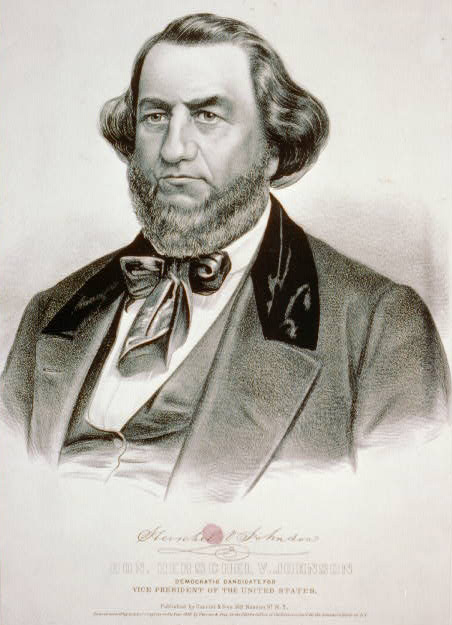
Former senator Herschel Johnson of Milledgeville was nominated for vice president of the United States on the Democratic ticket headed by Illinois senator Stephen Douglas. They lost to the Republican candidates, Abraham Lincoln and Senator Hannibal Hamlin.
1861
The Senate expelled Robert Toombs, who had already departed after Georgia’s secession on January 19, 1861. No action was taken in regard to Alfred Iverson, whose term had already expired. Their Senate seats remained vacant until 1871.
1868

Congress passed an act to admit the states of North Carolina, South Carolina, Louisiana, Georgia, Alabama, and Florida to representation in Congress. The statute, which conditioned representation with in Congress with ratification of the Fourteenth Amendment, was enacted over President Andrew Johnson's veto. In 1869 a second statute required Georgia's ratification of the Fifteenth Amendment, and on July 15, 1870, the state was admitted to representation in Congress.
1871

Joshua Hill of Madison, first elected by the state legislature in July 1868, was sworn into office, followed by Homer V. M. Miller of Rome several weeks later. The seating of the new senators from Georgia brought to an end a long and divisive fight over the admission of the state to representation in the Senate. Hill served until March 3, 1873, and was not a candidate for reelection.
1879

Senator John Gordon of Atlanta became chairman of the Committee on Commerce (today's Committee on Commerce, Science, and Transportation), serving until 1880.
1883
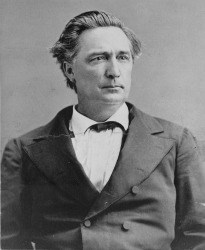
Alfred Colquitt of Atlanta became the first son of a Georgia senator to also become a senator. His father, Walter Colquitt, served from 1843 to 1848. Alfred served in the Senate until his death in Washington, D.C., on March 26, 1894.
1902
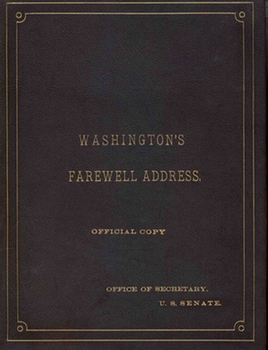
Augustus Bacon of Macon delivered George Washington's Farewell Address on the floor of the Senate, a tradition dating to 1862.
1911

Deadlocked over the election of a new president pro tempore, the Senate devised a system in which Democrat Augustus Bacon of Macon would alternate presiding in the post with four Republican senators. In 1913, after Democrats won a majority in the Senate, Bacon became the sole president pro tempore.
1913
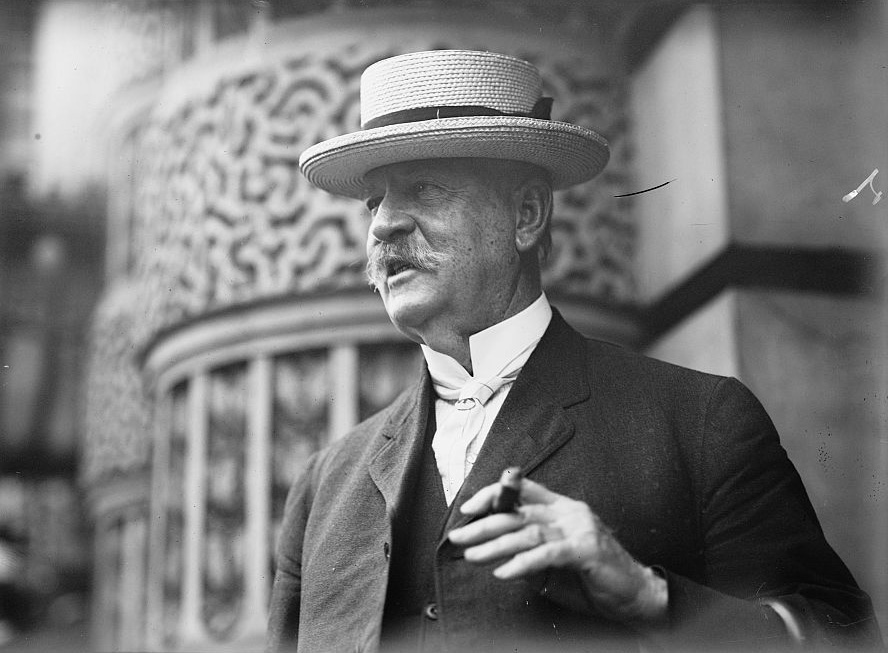
Senator Augustus Bacon became chairman of the Committee on Foreign Relations, serving until his death on February 14, 1914.
1913

Senator Hoke Smith of Atlanta became chairman of the Committee on Education and Labor (precursor to today's Committee on Health, Education, Labor, and Pensions), serving until 1919.
1914

Thomas Hardwick of Sandersville became the first directly elected senator from Georgia after the Seventeenth Amendment to the Constitution was adopted in 1913.
1922
_felton_desk_l.jpg)
Rebecca Felton of Cartersville became the first woman senator following her appointment by the governor to fill a vacancy. At 87 she was the oldest person appointed to the Senate, and although the Senate was in session only one day during her term, she delivered a speech in the Senate predicting that many women would follow her in office.
1922

Walter F. George of Vienna began service in the Senate and served until January 2, 1957. His tenure, the second-longest of Georgia's senators, lasted 34 years, one month and three days.
1926
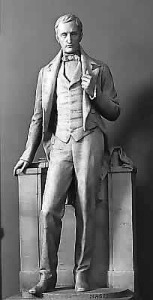
A statue of Dr. Crawford Long, the first surgeon to use ether as an anesthetic, sculpted by J. Massey Rhind, was unveiled at the Capitol as Georgia’s first contribution to the National Statuary Hall Collection.
1927

Walter F. George delivered George Washington's Farewell Address on the floor of the Senate, a tradition dating to 1862.
1927
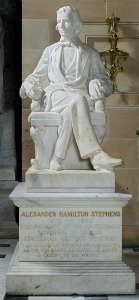
Georgia’s second contribution to the National Statuary Hall Collection, a statue of Alexander Stephens, vice president of the Confederacy, sculpted by Gutzon Borglum, was installed in the Capitol.
1932

Funeral services for Senator William J. Harris of Cedartown were held in the Senate Chamber.
1933

Richard B. Russell of Winder took his seat as the junior senator from Georgia. Russell served until January 21, 1971, a tenure of 38 years and 19 days—Georgia’s longest serving senator to date. When he took office, he began serving alongside Walter F. George and the two men worked together for almost 24 years, until George’s retirement on January 3, 1957.
1939
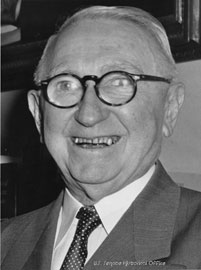
Senator Walter George became chairman of the Committee on Foreign Relations, serving until 1941, when he became chairman of the Committee on Finance. George served as Finance Committee chair until 1947, and again from 1949 to 1953, and then returned to Foreign Relations as committee chair from 1955 to 1957.
1943
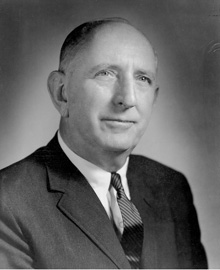
Richard Russell led a special Senate committee to investigate the effectiveness of war material under combat conditions around the world. Committee members traveled to England, North Africa, the Persian Gulf, India, China, and Australia, before returning to Washington on September 18.
1951
Senator Richard Russell became chairman of the Committee on Armed Services, serving until 1953, and again from 1955 to 1969. In May 1951, he co-chaired hearings investigating President Harry S. Truman’s firing of General Douglas MacArthur.
1952
Senator Richard Russell announced his candidacy for the Democratic presidential nomination but lost the nomination to Adlai Stevenson II.
1964
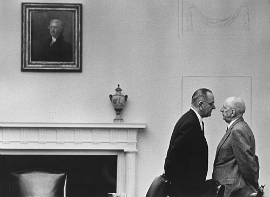
The longest filibuster in Senate history began. As head of the Southern caucus, Senator Richard Russell led the opposition to the the Civil Rights Act of 1964. The filibuster ended on June 10, after 60 days of debate, when the Senate voted 71 to 29 for cloture.
1969
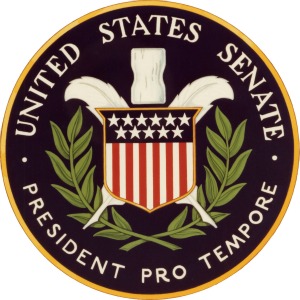
Richard Russell was elected president pro tempore of the Senate and held that position until his death on January 21, 1971.
1969
Senator Richard Russell became chairman of the Committee on Appropriations, serving until 1971.
1971

Senator Herman Talmadge became chairman of the Committee on Agriculture and Forestry. In 1977 its name changed to the Committee on Agriculture, Nutrition, and Forestry, which Talmadge continued to chair until 1981.
1973
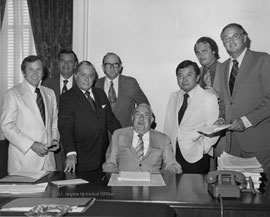
Senator Herman Talmadge began service on the special Senate committee investigating the Watergate burglary, which played a large role in the events which led to the resignation of President Richard M. Nixon.
1980

Mack Mattingly of St. Simons Island was elected as Georgia’s first Republican senator since Reconstruction. He defeated incumbent senator Herman Talmadge, who less than one month earlier, on October 11, had been denounced by his colleagues (in a 81 to 15 vote) for financial misconduct.
1982
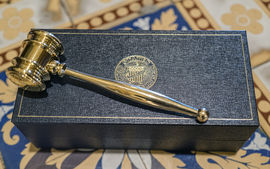
Senator Mack Mattingly received the Golden Gavel Award for presiding over the Senate for 100 hours in a single session.
1987

Senator Sam Nunn of Perry became chairman of the Committee on Armed Services, serving until 1995.
1996
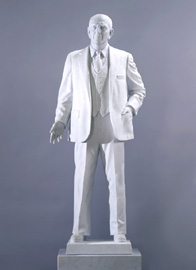
A marble statue of the late senator Richard Russell, sculpted by Frederick Hart, was installed in the Russell Senate Office Building rotunda.
1997

Max Cleland of Lithonia, a triple amputee wounded in Vietnam, took the oath as senator.
2003

Saxby Chambliss of Moultrie delivered George Washington's Farewell Address on the floor of the Senate, a tradition dating to 1862.
2005

Johnny Isakson of Marietta became senator after serving in the House of Representatives from 1999-2004. When Isakson began serving alongside his colleague, Saxby Chambliss, for the first time both Georgia seats in the Senate were held by Republicans.
2005

Senator Saxby Chambliss became chairman of the Committee on Agriculture, Nutrition, and Forestry, serving until 2007.
2011

Johnny Isakson delivered George Washington's Farewell Address on the floor of the Senate, a tradition dating to 1862.
2015
Johnny Isakson became chairman of the Senate Committee on Veterans' Affairs and the Senate Select Committee on Ethics, positions he held until his resignation on December 31, 2019.
2018

Senator David A. Perdue Jr. of Glynn County received the Golden Gavel Award for presiding over the Senate for 100 hours in a single session.
2022

Senator Raphael Warnock received the Golden Gavel Award for presiding over the Senate for 100 hours in a single session.